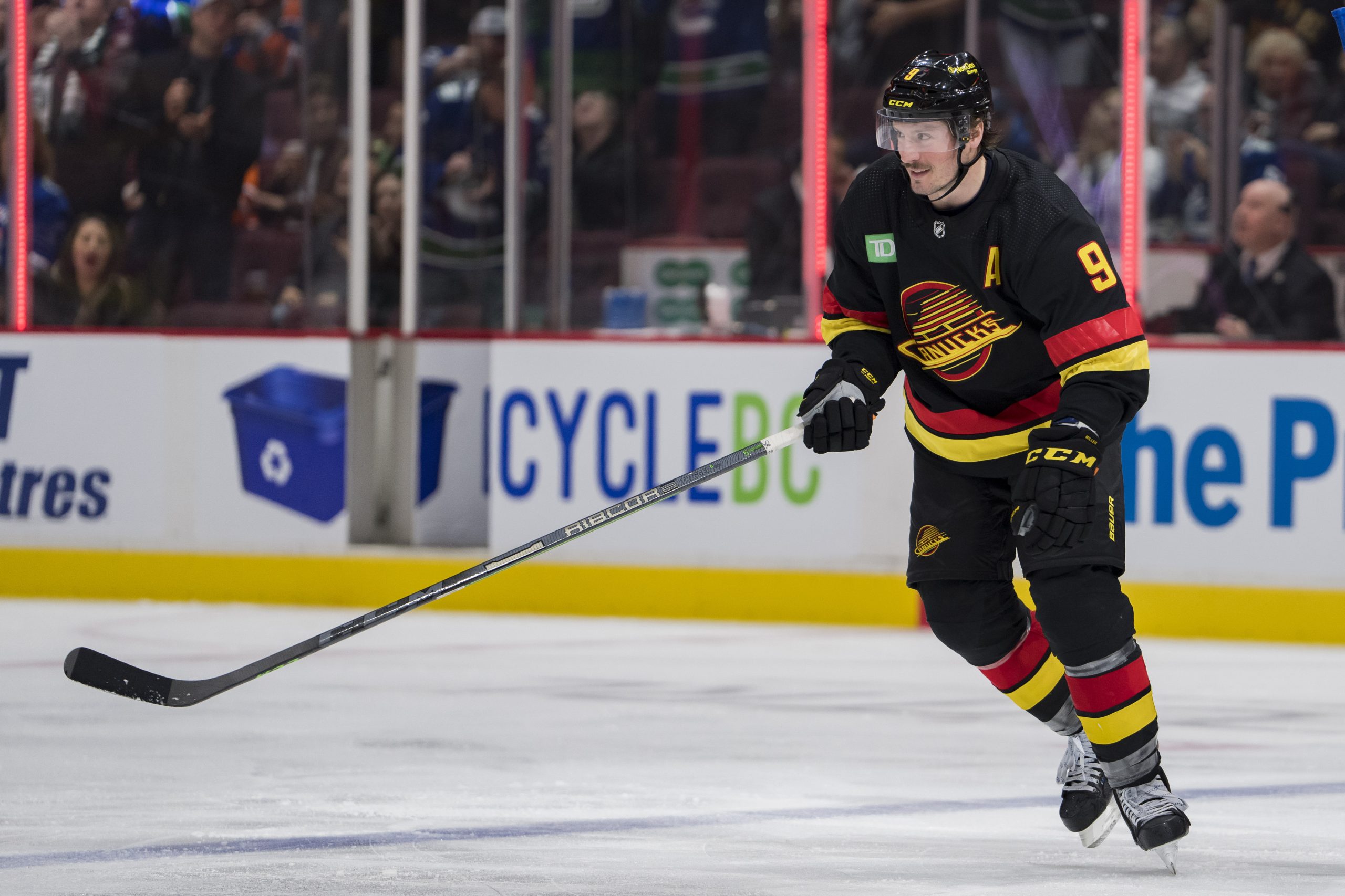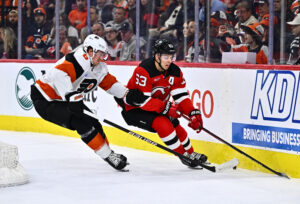Thinking of trades as March 3rd approaches isn’t strange. Thinking of a J.T. Miller trade is, but here we are running the rumour mill once again in a yearly sequel no one wanted.
What has led to JT Miller's name being back in the rumour mill?@frank_seravalli joined #Canucks Central with @danriccio_ and @SatiarShah to discuss that and more!
— Sportsnet 650 (@Sportsnet650) February 21, 2023
What a J.T. Miller Trade Does for Vancouver
What kind of lunatic team would trade away a player who hasn’t even started his seven-year contract extension? It’s not actually realistic they’d so dramatically reverse their biggest decision of the off-season, is it? How could a move like that be justified?
Given that it’s the Vancouver Canucks, they probably don’t have to. That style of move would likely get a nod of familiarity and comments of “yeah, sure, why not? That’s something they’d do.” After all, management decided to sign Miller instead of Bo Horvat despite the obvious question of why it should have been both or neither.
A Bit of History
At the risk of being overly obvious, Miller’s contract status has been talked about before. A LOT. Pre-signing, post-signing, and now post-signing, pre-enactment and it’s all Elliotte Friedman’s fault.
Miller has had a brilliant resurgence in finding a landing spot in Vancouver. He’s at better than a point-per-game in his 250+ games there unlike previous stops. In 435 games with the Tampa Bay Lightning and the New York Rangers, he scored 95 times and 237 points.
As we mentioned during the Horvat speculation, a J.T. Miller trade would seem to naturally follow moving the captain out. Keeping an older, more expensive player to fill the gap doesn’t make much sense on a rebuilding team. His signing is the biggest indicator that team management truly believed Vancouver was ready to push into the playoffs.
As Mike Tyson says, everyone has a plan until you get punched in the face. The plan has already changed – it’s only a question of how dramatically.
The Positive
There is a benefit to Miller’s absence, but it’s all about potential. Having an extra $8 million available starting next year is always welcome. Or $7 million, if the team needs to retain a little to pump up the return.
Another benefit – directly to the management-level folks – is immediate self-correction. Fans in Vancouver are very much unaccustomed to any of the team’s White Collar folks admitting to their mistakes. Such a move would go a long way to regaining fans’ trust.
It’s not like the team wouldn’t get a good return for Miller, either. In all the talk about his contract, it’s simply wrong to call it a burden for what he provides. But Vancouver isn’t the right team for that deal. Since they missed returning a right-side defenceman in the Horvat deal, this is one more chance to fill a gap.
Draft picks are absolutely going to be part of any return unless it’s entirely young prospects with a salary balancer. In either case, the age correction alone gives the team more focus on the future.
And, let’s be frank: Vancouver has traded away their highest scorer. A J.T. Miller trade would make the Canucks that much worse. While players never tank and coaches never tank, there comes a time when enough skill gets shovelled out the door that a tank simply happens.
The Negative
J.T. Miller is at over a point per game during his Canucks stay. There are no obvious candidates to replace his scoring, and even if he isn’t as good a centre as he is on the wing, he would be their second centre traded in a matter of weeks. As of now, there aren’t even any obscure candidates to replace him.
The Canucks depth chart is sorely lacking for prospective centres, as it was before the season began. Losing Miller leaves Elias Pettersson then… Nils Åman? Jack Studnicka? Eventually, there is hope that Aatu Räty will grow into an attacking centre, but relying on a 20-year-old to not only develop perfectly is a hard ask.
It’s one thing to plan for the future. It’s quite another to sell the present with no plan at all beyond “we hope”.
And there is a downside to the tank, as well. Players are real people, not characters in a computer game who don’t feel the effect of 15 losses in 20 games. Even if a team gets young talent into the lineup, you never want to teach that young talent to lose.
Main Photo: Bob Frid-USA TODAY Sports






